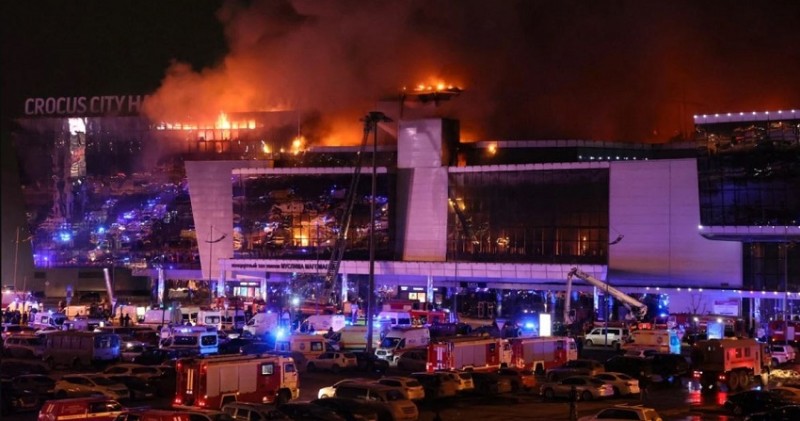
Russia has officially confirmed that the Islamic State (ISIS) was responsible for coordinating the devastating attack on a concert hall in Moscow last March, marking the deadliest terrorist incident in the country in two decades. The attack, which claimed the lives of over 140 people, was planned and executed by members of Khorasan Province (IS-K), an ISIS branch active in Afghanistan and Pakistan, according to Alexander Bortnikov, the head of FSB, quoted by the RIA Novosti news agency.
"During the investigation, it was established that the preparations, financing, execution, and withdrawal of the terrorists were coordinated via the internet by members of IS-K," Bortnikov stated.
ISIS had previously claimed responsibility for the March 22nd attack, but Russia had persistently attempted to link Ukraine and Western countries to the incident, allegations which they have consistently denied.
Bortnikov did not discount the Ukrainian angle, saying, "After the attack, the terrorists were given clear instructions to head towards the Ukrainian border, where a 'window' had been prepared for them." Ukraine has vehemently denied any involvement in the attack.
During the assault, gunmen wearing camouflage stormed the Crocus City Hall venue, located on the outskirts of Moscow, before setting fire to the building.
Over a dozen individuals, including the four attackers, all of whom are from Tajikistan, have been taken into custody. Tajikistan is a former Soviet republic situated on Afghanistan's northern border and is one of the poorest countries in the region.
The United States claimed it had warned Russia, both publicly and privately, in early March that extremists were planning an attack on a concert hall in Moscow. American media reported that unnamed U.S. intelligence officials had specifically informed Moscow that the target was Crocus City Hall.
Russia dismissed these warnings, with President Vladimir Putin accusing Washington of "blackmail" and attempting to "intimidate" Russians just three days prior to the attack.
Overall, the aftermath of the Moscow concert hall attack underscores the global impact of terrorism and the ongoing geopolitical tensions. Russia's attribution of responsibility to ISIS and its attempts to link the attack to Ukraine and Western nations have intensified diplomatic friction. Meanwhile, the arrest of suspects, including foreign nationals, highlights the transnational nature of modern terrorism. The incident has also strained relations between Russia and the United States, with accusations of prior warnings and a backdrop of mutual distrust. As investigations continue, the international community remains vigilant against the threat of terrorism and its implications on global security.
Putin's Power Grows as Russian Troops Advance in Ukraine; China, Iran, North Korea Show Support
US to Send Additional $275 Million in Military Aid to Ukraine
India, Egypt Lead in Russian Fuel Oil and VGO Imports in April, Here's Why....